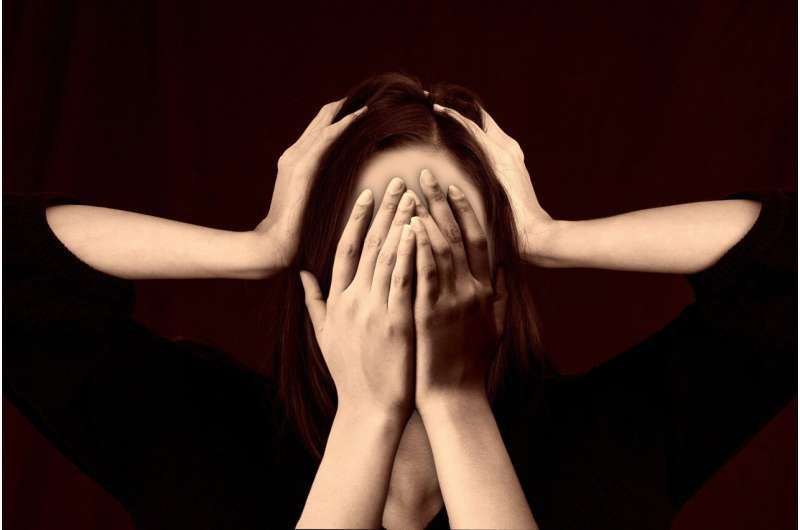This article has been reviewed according to Science X's editorial process and policies. Editors have highlighted the following attributes while ensuring the content's credibility:
fact-checked
peer-reviewed publication
trusted source
proofread
For people with migraine, feelings of stigma may impact disability, quality of life

Migraine can impact many aspects of a person's life, but less is known about how feelings of stigma about the disease affect quality of life. For people with migraine, these feelings of stigma were linked to more disability, increased disease burden and reduced quality of life, according to new research published in the January 17, 2024, online issue of Neurology.
"Stigma is common where the disease is not readily apparent to others, and there is indication that it could be especially relevant for those living with migraine," said study author Robert Evan Shapiro, MD, Ph.D., of the University of Vermont and Fellow of the American Academy of Neurology. "This stigma may arise when a person with migraine recognizes negative stereotypes about the disease and experiences shame for having the disease, fear of experiencing stigma from others, or other negative emotions."
For the study, researchers looked at 59,001 people with migraine with an average age of 41. Among all participants, 41% reported experiencing four or more headache days per month on average.
Participants answered 12 questions to assess two types of stigma: whether they felt others viewed migraine being used for secondary gain and whether they felt others were minimizing the burden of migraine. Questions included "How often have you felt that others viewed your migraine as a way to get attention?" "… as something that made things difficult for your co-workers or supervisor?" and "…with a lack of understanding of the pain and other symptoms?"
Researchers found that 32% of the participants experienced migraine-related stigma often or very often.
To assess migraine-related disability, participants reported the number of days they missed or had reduced productivity at work, home or social events over the previous three months. High scores on migraine-related stigma were linked with moderate to severe disability. Three-quarters of those who experienced stigma often or very often had moderate to severe disability, compared to 19% of those who never experienced stigma.
They also took a test assessing migraine-specific quality of life, which looked at the impact of migraine on social and work-related activities over the previous four weeks. Scores ranged from zero to 100 with higher scores meaning higher quality of life. Researchers found that those who experienced the highest rates of migraine-related stigma scored far lower in these tests, with an average score of 35 compared to those who did not experience stigma with an average score of 69.
The results remained the same after researchers adjusted for other factors that could affect disability and quality of life, such as age, employment status, other medical conditions and frequency of migraines.
They also found that the amount of stigma experienced increased with migraine severity. Those with 8-14 headache days or more than 15 monthly headache days were far more likely to report at least one form of stigma with 42% and 48%, respectively, compared to those with less than four monthly headache days with 26%.
"The social context of migraine may have a greater impact on quality of life than the number of monthly headache days," said Shapiro. "However, it is possible that connecting with others with migraine may help decrease migraine-related stigma and stereotypes. More studies are needed to explore the mechanisms that link stigma to health outcomes."
A limitation of the study was that participants self-reported their migraines, based on a questionnaire or a diagnosis from a health care provider, and they may not have remembered all the information accurately.
More information: Robert E. Shapiro et al, Migraine-Related Stigma and Its Relationship to Disability, Interictal Burden, and Quality of Life, Neurology (2024). DOI: 10.1212/WNL.0000000000208074 , dx.doi.org/10.1212/WNL.0000000000208074


















